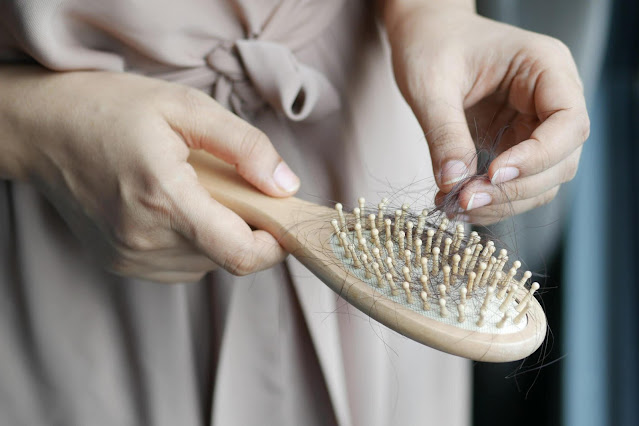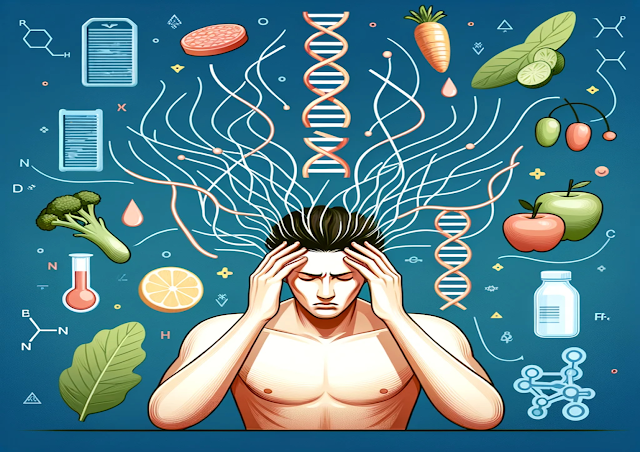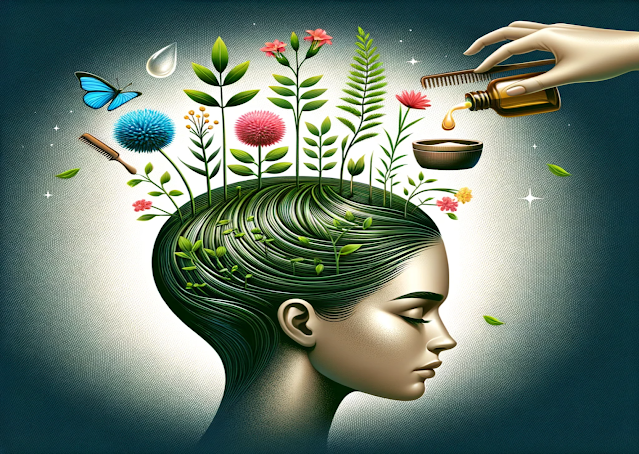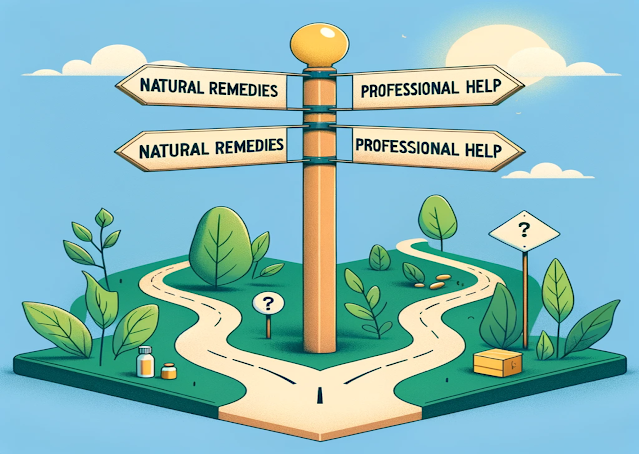Hair loss can be a distressing experience, affecting not just one's appearance but also their self-esteem and emotional well-being. With the growing interest in natural remedies and holistic health, many individuals are seeking ways to address hair loss and encourage hair regrowth without resorting to harsh chemicals or medical procedures. This guide aims to provide a comprehensive look at natural strategies for combating hair loss and fostering healthy hair growth.
- The Science Behind Hair Growth
- Natural Strategies for Hair Regrowth
- Debunking Myths and Addressing Common Concerns
- Advanced Natural Hair Regrowth Techniques
- Beyond the Basics - When to Seek Professional Help
- Frequently Asked Questions (FAQs)
- Conclusion
The Science Behind Hair Growth
The hair growth cycle consists of three main phases: anagen (growth), catagen (transition), and telogen (resting). Disruptions in this cycle, whether from hormonal imbalances, stress, or other factors, can lead to increased hair shedding and eventual thinning. Understanding this cycle is crucial in identifying the timing and treatment approaches for hair loss.
Natural Strategies for Hair Regrowth
Enhancing Hair Care Routines
Gentle Hair Management: The foundation of preventing hair loss and encouraging regrowth lies in adopting gentle hair care practices. Avoid harsh treatments such as frequent bleaching, perming, and excessive use of heat styling tools. These can weaken hair strands, leading to breakage and loss. Instead, opt for gentle brushing with a wide-toothed comb and minimize the use of tight hairstyles that pull on the scalp, such as tight ponytails or braids.
Nutritional Support for Hair Strength: A nutrient-rich diet plays a pivotal role in hair health. Key nutrients include:
- Iron: Essential for carrying oxygen to hair follicles. Iron-rich foods include spinach, lentils, and red meat.
- Zinc: Supports hair growth and repair. Found in foods like pumpkin seeds, chickpeas, and oysters.
- Vitamins A and C, and Omega-3 fatty acids: These nutrients help in producing scalp oils, maintaining hair hydration, and supporting hair follicles' health.
Incorporating a balanced diet that includes these nutrients can significantly impact hair strength and growth potential.
The Power of Essential Oils and Natural Supplements:
- Essential Oils: Oils such as rosemary, peppermint, and lavender have been shown to stimulate hair growth by enhancing blood circulation to the scalp. A few drops added to a carrier oil (like coconut or jojoba oil) and massaged into the scalp can provide benefits.
- Natural Supplements: Supplements like Viviscal, which contains a blend of fish protein, minerals, and vitamins, and fatty acids from fish oil or flaxseed oil can support hair health. However, it's crucial to consult with a healthcare provider before starting any supplement regimen.
Home Remedies and Lifestyle Modifications
Effective Home Remedies:
- Aloe Vera: Known for its soothing and anti-inflammatory properties, aloe vera can help calm the scalp and unblock hair follicles blocked by excess oil.
- Coconut Oil: Rich in fatty acids, coconut oil penetrates the hair shaft and reduces protein loss from hair.
Lifestyle Changes for Optimal Hair Health:
- Stress Reduction: High stress levels can lead to telogen effluvium. Techniques such as meditation, yoga, and regular exercise can mitigate stress and its effects on hair health.
- Improving Sleep Quality: Adequate sleep is essential for overall health and well-being, including hair health. Ensuring 7-9 hours of quality sleep nightly can help improve hair growth.
Debunking Myths and Addressing Common Concerns
Myths vs. Facts: Understanding Hair Loss Reality
There are many myths surrounding hair loss, such as the idea that frequent shampooing causes hair to fall out or that only men suffer from genetic hair loss. It's important to distinguish between myths and facts to effectively address hair loss. For instance, while shampooing does not cause hair loss, using harsh chemical-laden shampoos can contribute to hair damage and loss. Both men and women can be affected by genetic hair loss, though the patterns may differ.
Women and Hair Loss: Special Considerations
Hair loss in women, often more diffuse than in men, can significantly impact self-esteem and emotional well-being. Conditions like polycystic ovary syndrome (PCOS) can contribute to hair thinning in women. Understanding the unique factors at play in female hair loss is essential for finding effective treatments and support.
Advanced Natural Hair Regrowth Techniques
Scalp Care and Massage
A healthy scalp is the bedrock of healthy hair growth. Regular scalp massages can increase blood circulation to the hair follicles, providing them with more oxygen and nutrients. This can stimulate hair growth and lead to thicker, healthier hair over time. Utilizing natural oils, such as castor oil or peppermint oil, during massage sessions can enhance the benefits by nourishing the scalp and hair follicles.
Building a Hair-Friendly Routine
Adopting a holistic hair care routine is crucial for those looking to prevent hair loss and encourage regrowth naturally. This includes:
- Selecting Natural Hair Care Products: Choose shampoos and conditioners free from harsh chemicals like sulfates and parabens, which can strip hair of its natural oils and lead to brittleness and breakage.
- Minimizing Heat Styling: Excessive use of heat styling tools can damage the hair shaft. Opt for air drying or styling methods that do not require heat.
- Protecting Hair from Environmental Stressors: Wear a hat or use a leave-in conditioner with UV protection to shield your hair from the damaging effects of the sun, chlorine, and saltwater.
Implementing these practices into your daily routine can significantly impact your hair's health and vitality.
Beyond the Basics - When to Seek Professional Help
Recognizing Persistent Hair Loss Issues
While natural remedies can be highly effective for many, it's essential to recognize when professional help may be needed. If you experience sudden or patchy hair loss, or if your hair loss is accompanied by redness, scaling, or pain, these could be signs of an underlying condition that requires medical attention.
Medical Treatments vs. Natural Remedies
In cases where natural remedies are not sufficient to address hair loss, medical treatments may be necessary. Options like minoxidil (Rogaine) and finasteride (Propecia) have been approved for treating hair loss, with many individuals seeing significant improvements. However, these treatments can come with side effects, and not everyone is a candidate. Consulting with a dermatologist or trichologist can provide you with a tailored approach based on your specific situation and needs.
Frequently Asked Questions (FAQs)
What stimulates hair regrowth? A combination of a healthy diet, scalp care, stress management, and natural remedies like essential oils can stimulate hair regrowth.Conclusion
Tackling hair loss and encouraging natural hair regrowth is a multifaceted journey that involves understanding the underlying causes, implementing healthy hair care practices, and nurturing your overall health. While this guide offers comprehensive strategies for addressing hair loss naturally, remember that patience and consistency are key. Every individual's hair journey is unique, and what works for one person may not work for another. Embrace a holistic approach, stay informed, and don't hesitate to seek professional advice when necessary.
Call to Action
Have you tried any natural remedies for hair loss that worked for you? Share your stories and tips in the comments below to help others on their journey to healthier hair.






